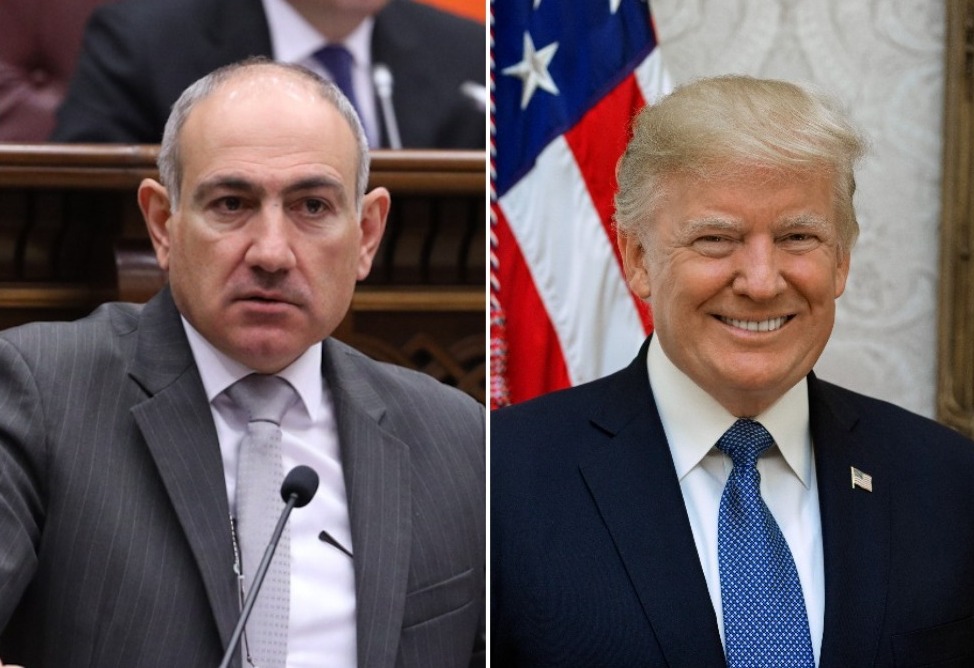Armenian foreign ministry describes Aliyev’s territorial claims as ‘racist’
09.02.2018,
16:14
Armenia’s foreign ministry lambasted today Azerbaijani president Ilham Aliyev for calling for the ‘return of Yerevan,’ which he described as a ‘historical Azerbaijani land.’

YEREVAN, February 9. /ARKA/. Armenia’s foreign ministry lambasted today Azerbaijani president Ilham Aliyev for calling for the ‘return of Armenian capital city Yerevan,’ which he described as a ‘historical Azerbaijani land.’ Aliyev made the call during a congress of the ruling ‘New Azerbaijan’ party. Aliyev also said that the return of these lands is a strategic and political goal of Azerbaijan.
A spokesman for the Armenian foreign ministry Tigran Balayan said in a statement that Aliyev’s call is a manifestation of the "racist essence of the ruling regime in Baku."
"The territorial claims of the president of Azerbaijan, a state that emerged on the political map of the world only 100 years ago, are not new. This statement together with repeated declarations that Armenians of the world are the number one enemies of Azerbaijan, once again demonstrate the entire racist essence of the ruling regime in Baku, "Balayan said.
Balayan said also that Aliyev’s show of bravado at a meeting that was devoted to himself is aimed at covering up the failures of his foreign policy, as well as the worsening socio-economic situation in Azerbaijan.
The Nagorno-Karabakh conflict erupted into armed clashes after the collapse of the Soviet Union in the early 1990s as the predominantly Armenian-populated enclave of Azerbaijan sought to secede from Azerbaijan and declared its independence backed by a successful referendum.
On May 12, 1994, the Bishkek cease-fire agreement put an end to the military operations. A truce was brokered by Russia in 1994, although no permanent peace agreement has been signed. Since then, Nagorno-Karabakh and several adjacent regions have been under the control of Armenian forces of Karabakh.
Nagorno-Karabakh is the longest-running post-Soviet era conflict and has continued to simmer despite the relative peace of the past two decades, with snipers causing tens of deaths a year. On April 2, 2016, Azerbaijan launched military assaults along the entire perimeter of its contact line with Nagorno-Karabakh. Four days later a cease-fire was reached. -0-
A spokesman for the Armenian foreign ministry Tigran Balayan said in a statement that Aliyev’s call is a manifestation of the "racist essence of the ruling regime in Baku."
"The territorial claims of the president of Azerbaijan, a state that emerged on the political map of the world only 100 years ago, are not new. This statement together with repeated declarations that Armenians of the world are the number one enemies of Azerbaijan, once again demonstrate the entire racist essence of the ruling regime in Baku, "Balayan said.
Balayan said also that Aliyev’s show of bravado at a meeting that was devoted to himself is aimed at covering up the failures of his foreign policy, as well as the worsening socio-economic situation in Azerbaijan.
The Nagorno-Karabakh conflict erupted into armed clashes after the collapse of the Soviet Union in the early 1990s as the predominantly Armenian-populated enclave of Azerbaijan sought to secede from Azerbaijan and declared its independence backed by a successful referendum.
On May 12, 1994, the Bishkek cease-fire agreement put an end to the military operations. A truce was brokered by Russia in 1994, although no permanent peace agreement has been signed. Since then, Nagorno-Karabakh and several adjacent regions have been under the control of Armenian forces of Karabakh.
Nagorno-Karabakh is the longest-running post-Soviet era conflict and has continued to simmer despite the relative peace of the past two decades, with snipers causing tens of deaths a year. On April 2, 2016, Azerbaijan launched military assaults along the entire perimeter of its contact line with Nagorno-Karabakh. Four days later a cease-fire was reached. -0-



